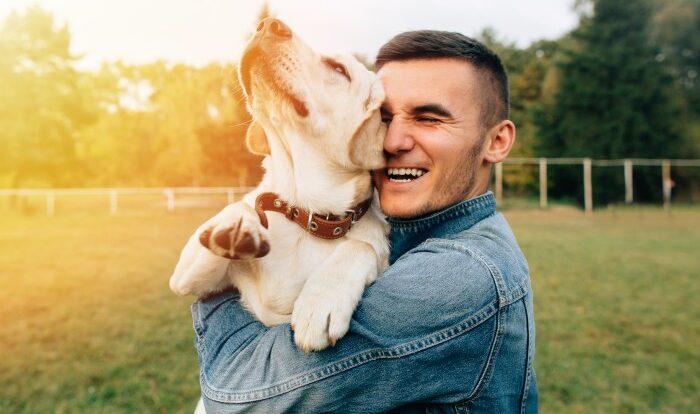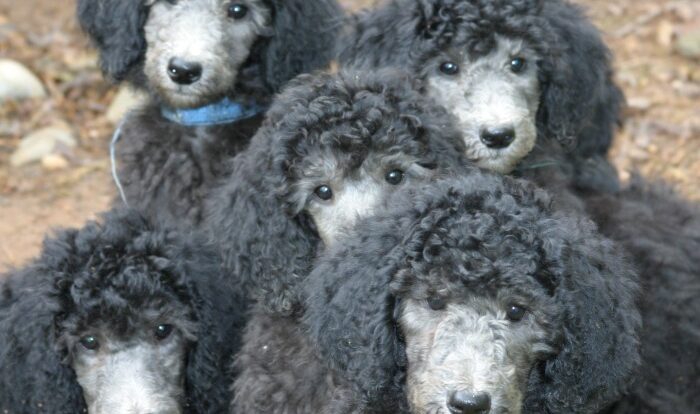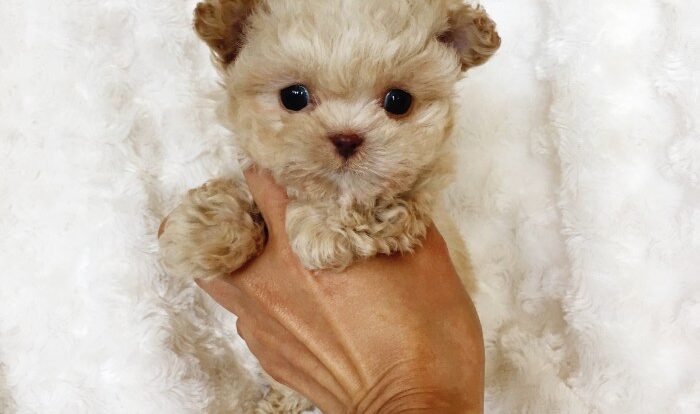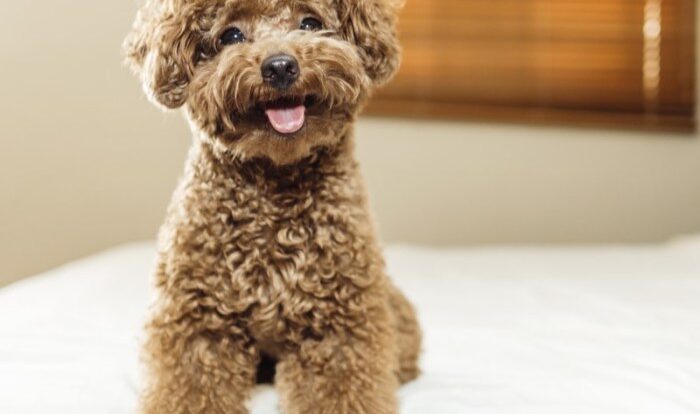Long haired dachshund puppies set the stage for this enthralling narrative, offering readers a glimpse into a story that is rich in detail and brimming with originality from the outset. As we delve into the world of these charming pups, we will explore their unique characteristics, breeding and genetics, training and socialization, nutrition and diet, exercise needs, common health issues, living environment, playtime and bonding, behavioral traits, and essential care tips.
Throughout this guide, we aim to provide valuable insights and practical advice to help you better understand and care for your long haired dachshund puppy.
Characteristics of Long Haired Dachshund Puppies
Long haired dachshund puppies are known for their distinctive appearance and playful personalities. Here are some key characteristics of these adorable pups:
Physical Appearance, Long haired dachshund puppies
Long haired dachshund puppies have a sleek, shiny coat that is longer than the standard smooth-haired dachshund. They come in a variety of colors including red, black, chocolate, and cream. These puppies have a unique look with their long, flowing fur that adds to their charm.
Temperament
In terms of temperament, long haired dachshund puppies are similar to other dachshund variations. They are affectionate, curious, and intelligent dogs with a strong sense of loyalty to their owners. These puppies can be a bit stubborn at times, but with proper training and socialization, they make wonderful companions.
Grooming Needs
Long haired dachshund puppies require regular grooming to keep their coat looking its best. They need to be brushed several times a week to prevent tangles and mats from forming. Regular baths are also important to keep their fur clean and healthy.
Additionally, trimming around the ears and paws may be necessary to maintain their overall appearance.
Breeding and Genetics: Long Haired Dachshund Puppies

When it comes to long-haired dachshund puppies, their coat type is determined by genetics passed down from their parents. The long hair gene is a recessive trait, meaning that both parents must carry this gene for it to be expressed in their offspring.
Inheritance of Coat Type
- Long-haired dachshunds inherit their coat type when both parents carry the recessive long hair gene.
- If one parent is a long-haired dachshund and the other is a smooth or wire-haired dachshund, the puppies may inherit the long hair gene but not necessarily display it in their coat.
- It is essential for breeders to understand the genetics of coat type to selectively breed for long hair while preventing potential health issues associated with the gene.
Breeding Practices
- Breeders must carefully select parent dachshunds with the long hair gene to produce long-haired puppies.
- Responsible breeders avoid breeding two long-haired dachshunds together to prevent genetic health concerns associated with the gene.
- Proper breeding practices involve genetic testing, health screenings, and ethical considerations to ensure the well-being of the puppies.
Health Concerns
- The long hair gene in dachshunds is associated with an increased risk of certain health issues, such as intervertebral disc disease (IVDD).
- Long-haired dachshunds are prone to back problems due to their elongated bodies, and the additional weight and insulation from their long coat can exacerbate these issues.
- Breeders must prioritize the health and welfare of long-haired dachshund puppies by breeding responsibly and providing proper care and maintenance throughout their lives.
Training and Socialization
Training and socialization are crucial aspects of raising a well-behaved and well-adjusted long-haired dachshund puppy. Proper training helps in developing good behavior and manners, while socialization ensures that the puppy is comfortable and confident in various situations and environments.
Training Long-Haired Dachshund Puppies
Training long-haired dachshund puppies requires consistency, patience, and positive reinforcement. Here are some tips for training your long-haired dachshund puppy:
- Start training early: Begin training your puppy as soon as you bring them home to establish good habits from the start.
- Use positive reinforcement: Reward good behavior with treats, praise, or toys to encourage your puppy to repeat the desired behavior.
- Be consistent: Establish a routine and set clear rules for your puppy to follow to avoid confusion.
- Keep training sessions short and fun: Long-haired dachshund puppies have short attention spans, so keep training sessions brief and engaging.
- Focus on basic commands: Teach your puppy basic commands such as sit, stay, come, and heel to ensure good obedience.
Importance of Socialization
Socialization is essential for long-haired dachshund puppies to ensure they are comfortable around people, other animals, and in different environments. Proper socialization helps prevent fearfulness, aggression, and anxiety in adult dogs. Some activities that can help in socializing your long-haired dachshund puppy include:
- Exposing them to different people: Introduce your puppy to a variety of people, including children, adults, and strangers, to help them feel comfortable around different individuals.
- Meeting other dogs: Arrange playdates with other friendly dogs to help your puppy learn appropriate social behaviors and communication skills.
- Exploring new environments: Take your puppy to different places such as parks, pet stores, and busy streets to expose them to various sights, sounds, and smells.
- Positive experiences: Ensure that all socialization experiences are positive and rewarding for your puppy to build their confidence and trust in new situations.
Nutrition and Diet
When it comes to long-haired dachshund puppies, providing a well-balanced diet is essential for their overall health and development. Proper nutrition plays a crucial role in supporting their growth, maintaining a healthy weight, and preventing common health issues.
Dietary Requirements
Long-haired dachshund puppies require a diet that is rich in essential nutrients such as protein, fats, carbohydrates, vitamins, and minerals. Protein is particularly important for muscle development, while fats provide energy and support skin and coat health. Carbohydrates are a good source of energy, and vitamins and minerals are necessary for various bodily functions.
Specific Nutritional Needs
Compared to other dachshund variations, long-haired dachshund puppies may have specific nutritional needs related to their coat health. Their long, flowing fur requires extra nutrients to maintain its luster and prevent matting. Omega-3 fatty acids, found in fish oil, can help promote a healthy coat and skin.
Feeding Schedule Recommendations
It is recommended to feed long-haired dachshund puppies two to three times a day to maintain stable blood sugar levels and prevent overeating. Portion control is crucial to avoid obesity, which can put strain on their long back. Consult with your veterinarian to determine the appropriate amount of food based on your puppy’s age, size, and activity level.
Exercise and Activity Levels
Long-haired dachshund puppies have moderate exercise needs that should be met to keep them healthy and happy. Regular walks, playtime, and interactive toys are essential to help them burn off energy and prevent obesity.
Comparison of Activity Levels
Long-haired dachshund puppies generally have similar activity levels to short-haired dachshund puppies. However, long-haired dachshunds may have slightly lower endurance due to their longer coats, which can make them more prone to overheating during vigorous activities.
Ideas for Keeping Long-Haired Dachshund Puppies Active and Healthy
- Engage in daily walks or play sessions to keep them physically active.
- Provide mental stimulation with puzzle toys or training exercises to keep their minds sharp.
- Consider agility training or obedience classes to challenge them both physically and mentally.
- Monitor their weight and adjust their diet as needed to prevent obesity and joint issues.
- Ensure they have access to cool, shaded areas during hot weather to prevent overheating.
Common Health Issues
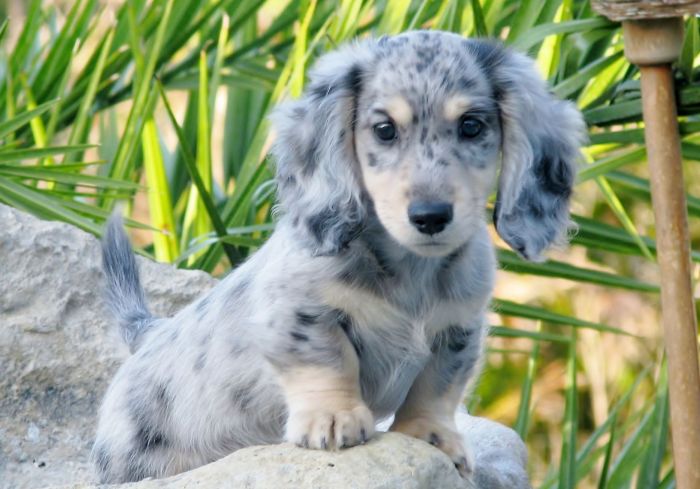
Long-haired dachshund puppies, like all dog breeds, are susceptible to certain health issues that owners should be aware of in order to provide proper care and attention to their furry companions.
Common Health Problems
Long-haired dachshund puppies may face a variety of health issues, including:
- Intervertebral Disc Disease (IVDD): Due to their elongated bodies, dachshunds are prone to back problems, particularly herniated discs.
- Obesity: Dachshunds can easily gain weight, leading to obesity which can exacerbate other health issues.
- Dental Problems: Small breeds like dachshunds are prone to dental issues, such as tooth decay and gum disease.
- Eye Problems: Long-haired dachshunds may be susceptible to eye conditions like cataracts or progressive retinal atrophy.
Preventive Measures
To maintain the health of long-haired dachshund puppies, preventive measures can be taken, including:
- Regular exercise to prevent obesity and strengthen their back muscles.
- Providing a balanced diet to ensure they maintain a healthy weight.
- Regular dental care, such as brushing their teeth or providing dental chews.
- Keeping their eyes clean and monitoring for any signs of eye problems.
Importance of Veterinary Check-ups
Regular veterinary check-ups are crucial for long-haired dachshund puppies to:
- Detect any health issues early on before they escalate into more serious conditions.
- Receive necessary vaccinations and preventive treatments to keep them healthy.
- Monitor their weight, dental health, and overall well-being.
- Establish a relationship with a trusted veterinarian who can provide tailored care for their specific needs.
Living Environment
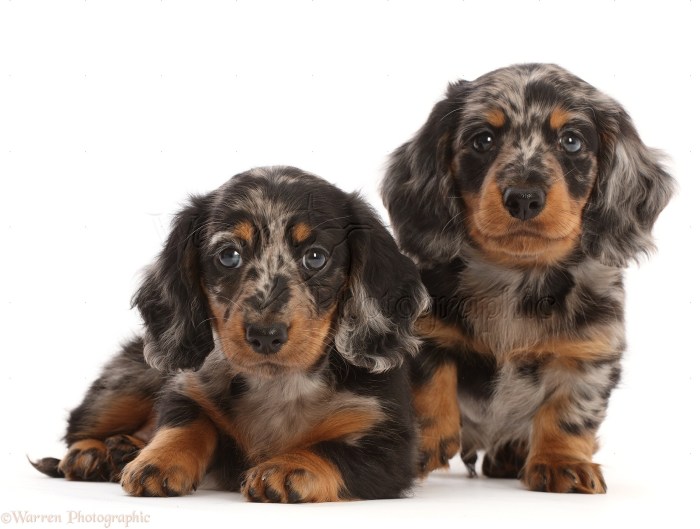
Long-haired dachshund puppies thrive in a living environment that provides both comfort and safety. When creating a space for these puppies at home, it is essential to consider their specific needs and characteristics to ensure their well-being and happiness.
Ideal Living Environment
- Provide a cozy and warm area for your long-haired dachshund puppy to rest and sleep comfortably. Consider providing a soft bed or blanket in a quiet corner of your home.
- Ensure that the living space is safe and free of hazards such as small objects that could be swallowed or sharp edges that could cause injury.
- Long-haired dachshund puppies enjoy access to a secure outdoor area where they can explore and play. A fenced yard is ideal to prevent them from wandering off.
- Regularly groom your long-haired dachshund puppy to keep their coat clean and healthy, as their long fur requires more maintenance compared to other breeds.
Adaptability to Different Living Situations
Long-haired dachshund puppies are adaptable to various living situations, whether in an apartment or a house with a yard. They are known for their ability to thrive in different environments as long as their basic needs are met. However, they may require more attention and exercise in smaller living spaces to prevent boredom and excess energy.
Creating a Safe Space at Home
- Secure cabinets and trash cans to prevent access to harmful substances or small objects that could be ingested.
- Use baby gates to block off areas that are not puppy-proofed, such as stairs or rooms with delicate items.
- Provide interactive toys and mental stimulation to keep your long-haired dachshund puppy entertained and prevent destructive behavior.
- Establish a routine for feeding, potty breaks, and playtime to create a sense of stability and security for your puppy.
Playtime and Bonding
Playtime is an essential aspect of a long-haired dachshund puppy’s life, as it provides mental stimulation, physical exercise, and helps in building a strong bond with their owners. Interactive games and toys play a crucial role in keeping these puppies engaged and happy, contributing to their overall well-being.
Interactive Games and Toys
Engaging long-haired dachshund puppies in interactive games not only keeps them physically active but also stimulates their cognitive abilities. Toys that dispense treats or require problem-solving skills are excellent choices. Puzzle toys, fetch, hide and seek, and tug-of-war are popular games that can keep these puppies entertained for hours.
Bonding Process
Bonding with a long-haired dachshund puppy is a gradual process that requires time, patience, and consistency. Spending quality time engaging in playtime activities, training sessions, and simply being present with your puppy helps strengthen the bond between the owner and the puppy.
Positive reinforcement, such as treats and praise, can further enhance this bond and create a trusting relationship.
Behavioral Traits
Long-haired dachshund puppies exhibit a unique set of behavioral traits that are characteristic of the breed. Understanding these behaviors can help owners better care for and train their dachshund puppies. In comparison to other dog breeds, long-haired dachshunds are known for their playful and curious nature, as well as their stubborn streak.
Training techniques tailored to their specific needs can help address any challenging behaviors that may arise.
Common Behavioral Traits
- Curiosity: Long-haired dachshund puppies are naturally curious and may explore their surroundings with great enthusiasm. This trait can be channeled into positive activities through proper training and enrichment.
- Playfulness: These puppies are known for their playful demeanor and love for interactive games and toys. Regular playtime can help keep them mentally and physically stimulated.
- Stubbornness: Long-haired dachshunds can be stubborn at times, especially when it comes to training. Consistent and positive reinforcement techniques are essential in addressing this behavior.
- Alertness: Due to their background as hunting dogs, dachshund puppies are naturally alert and may bark to alert their owners of any perceived threats or changes in their environment.
- Bonding: Long-haired dachshund puppies are loyal and form strong bonds with their owners. They thrive on companionship and may exhibit separation anxiety if left alone for long periods.
Long-Haired Dachshund Puppy Care Tips
Long-haired dachshund puppies require specific care to maintain their coat and overall health. By following these care tips, you can ensure your puppy thrives in a healthy environment.
Grooming Long-Haired Dachshund Puppies
Regular grooming is essential for long-haired dachshund puppies to prevent matting and tangles in their coat. Use a slicker brush to gently brush their fur at least 2-3 times a week to keep it smooth and manageable. Pay special attention to areas prone to tangles, such as behind the ears and under the legs.
Additionally, trim their nails regularly to prevent discomfort and keep their paws healthy.
Maintaining Overall Well-being
Aside from grooming, ensure your long-haired dachshund puppy receives regular veterinary check-ups, vaccinations, and parasite prevention treatments. Provide a balanced diet tailored to their nutritional needs and access to fresh water at all times. Engage them in mental stimulation activities to prevent boredom and promote their overall well-being.
Creating a Routine Care Schedule
Establishing a routine care schedule for your long-haired dachshund puppy can help you stay organized and ensure all their needs are met. Include grooming sessions, feeding times, exercise routines, training sessions, and vet appointments in your schedule. Consistency is key to providing the best care for your puppy and promoting their well-being throughout their life.
Ultimate Conclusion
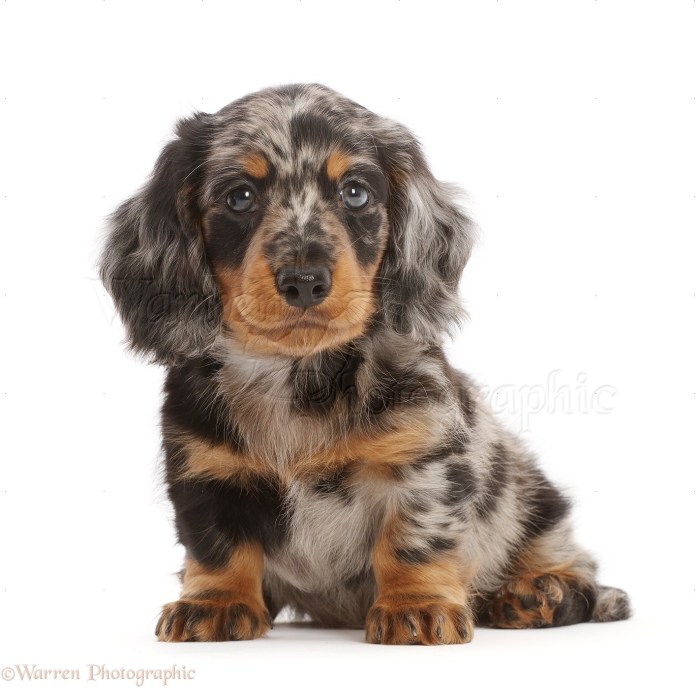
In conclusion, long haired dachshund puppies are not just adorable companions but also require specific care and attention to thrive. By following the guidelines Artikeld in this comprehensive guide, you can ensure that your long haired dachshund puppy leads a happy and healthy life filled with love and joy.

